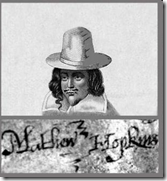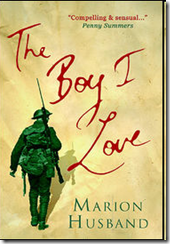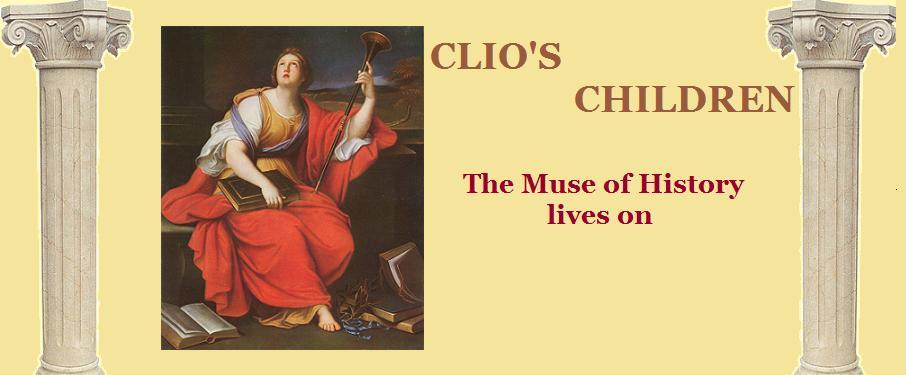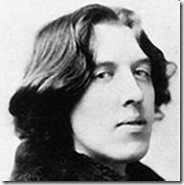There’s a post over at Reading the Past which discusses the presence or absence of actual historical characters and events in historical fiction and whether the absence of them in books defines historical fiction or not.
I’m rather of the opinion that—going by the HNS definition—that it doesn’t make any difference whether there are any actual historical figures or notable events in the book or not. In fact—for every single historical book to have real life historical figures in it would actually be ludicrous, for it would mean if you were writing about ordinary people living their ordinary lives—say slaving away in the cane fields of America or grubbing a living in the sordid streets of the Potteries—to suddenly introduce a real historical person would be a huge jolt. I mean, look at even everyday lives today, how many people can say that they’ve met someone of note? (And I don’t mean a Big Brother third rate celebrity, but someone that history will remember, such as Nelson Mandela or Mother Theresa?
Granted there is a real life person in my second novel, Transgressions, the clever and charismatic Matthew Hopkins of Witchfinder fame. (Ignore the Vincent Price version puhleeze, that’s soft porn, just about).
But that wasn’t exactly a conscious decision to include him,  Jonathan just happened to be in the right place at the right time. And as for historical events, it would have been a little difficult to have two young men in 1642 NOT aware of the impending war. That being said, there is a true story which involves a farmer being asked if his land can be used for one of the battles and he said “Who’s fighting who, then?” (Communication not being a key aspect of the 17th century, and obviously not everyone knew about the war!)
Jonathan just happened to be in the right place at the right time. And as for historical events, it would have been a little difficult to have two young men in 1642 NOT aware of the impending war. That being said, there is a true story which involves a farmer being asked if his land can be used for one of the battles and he said “Who’s fighting who, then?” (Communication not being a key aspect of the 17th century, and obviously not everyone knew about the war!)
But I don’t think it’s necessary at all to base your historical around real life events, or real life characters, and in fact its the stories that aren’t that I find most interesting. If anyone has read “The Boy I Love” by Marion Husband you’ll see that it’s just a story about people, living their lives. In the same gentle manner that many of A J Cronin’s books are written, or Cookson’s. 
To expect every book to be set around a historical event is also ludicrous. People always pick the same events too. I’d like someone to make a study of books written about the Titanic and add up how many people to date have sailed on the ill-fated ship. I would bet that her complement of passengers has increased by at least three-fold. I’m surprised she managed to get out of the harbour without sinking!
That being said – It always surprises me, with the enormous wealth of GLBT characters in history, that there aren’t more gay historical books about real GLBT characters.
So what do you think? Should historical novels all include famous people? Famous events? Or do you think that the little stories are just as important as the big ones?






2 comments:
All stories are important, but yes I do get a little tired by so many historical fiction authors seeming to think they *need* to have a significant historical event - although I could be being unfair there, and it's more to do with publishers' demands? *shrug*
One of the many things I like about Transgressions is that although the civil war is happening, we don't really see much of it. Lots of people over the years have said to me "You like historical fiction? You'd love Sharpe," when actually, no I don't think I would. The army just doesn't really interest me... and although I do like naval historical fiction I get tired of the number of times the author's main character(s) just *happen* to meet Nelson. In many ways, I think C S Forrester had it right - Hornblower is rarely engaged in the key historical battles because he's off elsewhere, in a forgotten battle which, when you look at the whole broad sweep of history, helped the victory we remember to be gained; and the only time we see Nelson in the Hornblower books is one brush (literally) past as the two men hurry in opposite directions, and then the funeral procession...
The historical story I'm working on at the moment is set during the era of the Napoleonic wars (Spring 1812-Autumn 1815), but we don't see any fighting - I got inspired by thinking about all the people who didn't go to war, who stayed behind and kept producing the food and other things which the country needed to keep going and to fight the war; and right at the end, the question crops up of what does a soldier do when he can't fight any more... So yes, it is a story about the anonymous people, but in reality without them the big stories would never have turned out the way they did.
Absolutely - it's ludicrous to think that unless it involves real people or events that got into the history books, that it can't be termed historical. After all - how many historical events do I partake in? Other than watching them on the telly, that is...
Looking forward to reading yours! And thank you for your kind words on Transgressions. Part of that was deliberate because I didn't want to do several years of the war because it wasn't relevant to the plot. In Sharpe, the war IS the plot and Richard's movement through it and up the greasy pole, but with David and Jonathan it simply got in the way of their life, and changed them forever.
Post a Comment